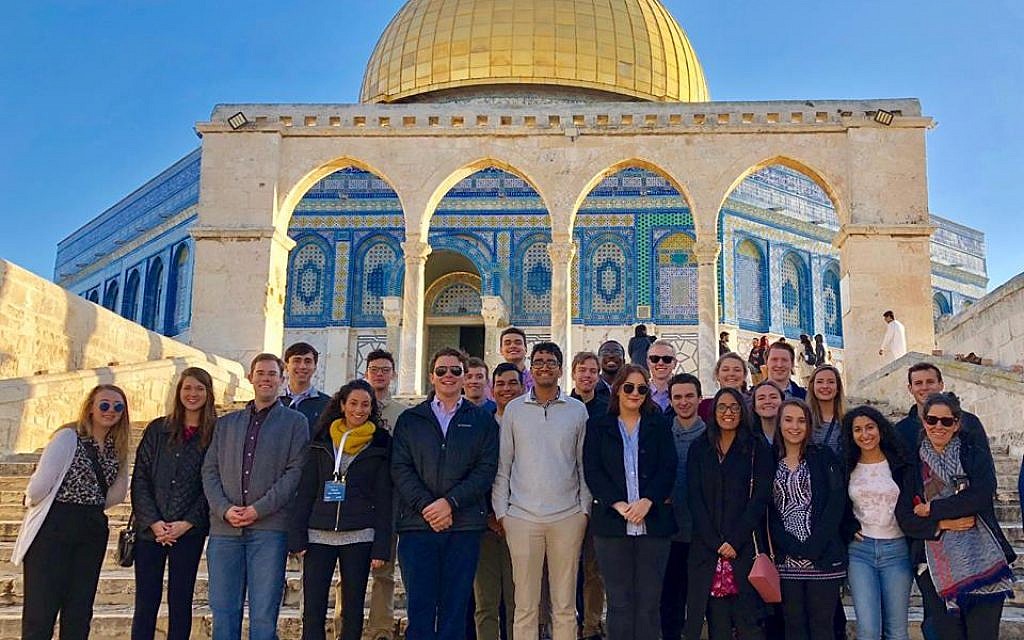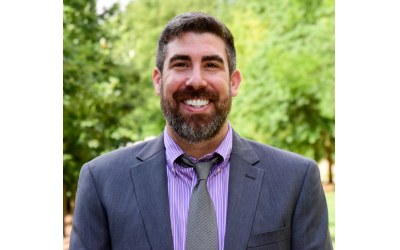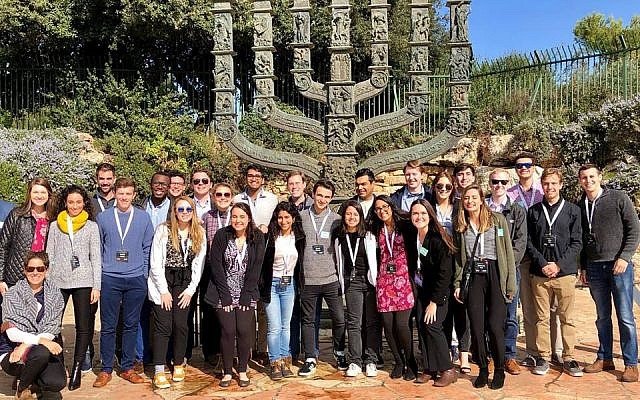Anti-Israel Sentiments Make Waves on Campus
Relations between Jewish and Muslim students at Georgia State University have been strained lately.
Rachel is a reporter/contributor for the AJT and graduated from the University of Central Florida in Orlando. After post graduate work at Columbia University, she teaches writing at Georgia State and hosts/produces cable programming. She can currently be seen on Atlanta Interfaith Broadcasters.
Relations between Jewish and Muslim students at Georgia State University have been strained lately.
GSU’s Student Government Association last month responded to demands from student groups, such as Faces for Feminism and Panthers for Black Feminism, that wanted to impose Boycott, Divestment, and Sanctions against Israel on campus.
The BDS request specifically targeted the Georgia International Law Enforcement Exchange at GSU. The student groups also called for the resignation and an apology from SGA members for attending a free trip to Israel over winter break sponsored by GSU Hillel.
“The trip’s main purpose was to educate us about the culture, history and diversity by showing us historical landmarks and buildings that hold both religious and historical significance of Israel/Palestine,” SGA leaders said in a letter to students. “Upon returning, it was brought to our attention that certain student-led groups were upset that members of the Student Government would accept a free trip to Israel on the basis that it ‘romanticiz[es] the occupation & legitimiz[es] the genocide and colonization of the Palestinian people.’”
The Muslim Student Association did not return repeated requests by the AJT for comment.

GSU spokesperson Andrea Jones said that the school is staying out of the issue. “The university hasn’t taken any action,” she said. “This is an issue between student organizations.”
Much of the tension stems from the December trip to Israel, partly organized by the Maccabee Task Force, which combats anti-Semitism on campus. The trip was designed to send both Jews and non-Jews to Israel, and much of the focus of the program is to educate participants on issues affecting Israel, including the Israeli-Palestinian conflict.

Rabbi Russ Shulkes, executive director of Hillels of Georgia, was excited to host the trip this year. “When students know facts on the ground, they will often have a more positive attitude towards Israel,” he said. “Then they’re much more likely to vote against any BDS measures.”
But reaction to the Israel trip shows the anti-Zionist attitudes on campus, Rabbi Shulkes said. “Even last month, we’ve had some smaller groups seemingly trying to punish SGA,” he said. “The Panthers for Black Feminists, for example, staged a 10-person protest expressing that members of SGA should step down for partnering with Zionists. Someone in SGA came out against our trip and was forced to apologize because she broke SGA bylaws.”
In a Jan. 16 letter to GSU students, SGA’s leadership addressed the BDS demands, refusing to step down or apologize and explained their nonpartisan position on BDS and the Israel trip.
The latest conflict arose late last month when student groups at GSU introduced a motion for SGA to halt funding to the school’s GILEE program. Robert Friedmann started GILEE in 1992 to foster cooperation between Georgia law enforcement agencies and Israel’s police force.

GSU doesn’t fund the program, and once SGA realized there was no funding, the issue was dropped. Jewish groups worry, though, that the student government’s Senate could rewrite the bill to reflect anti-Israel sentiments.
“The groups that don’t like GILEE on campus aren’t lying idle,” Friedmann said. “It’s likely they’ll issue another initiative and try to close our program. GILEE is reputable and award-winning, and we’re not going anywhere. But the problem with these tactics is that it can give legitimacy to anti-Semitism on campus and everywhere else. Even though they have no facts and it’s purely propaganda used, it’s dangerous. We’ve had problems with groups trying to shut GILEE down since 2009, including groups petitioning the university president to shut the program down, but the president refused. Since then though, the anti-Zionist and anti-Semitic sentiments have gotten worse.”
SGA pointed to the Georgia legislature’s passage of an anti-BDS bill in 2016. “As a state-funded school, the decision in regard to actionable BDS legislation either supporting or disagreeing will be determine by the Board of Regents and state legislators.”
SGA’s leadership explained the importance of trips to Israel to understand the diverse nature of the university and the world.
The Israel trip at the root of the conflict was open to students from a wide variety of backgrounds: Muslim, Catholic, Presbyterian, and Methodist, along with Jewish students. However, GSU’s Students for Justice in Palestine group was opposed to Muslims participating in the trip. In addition to posting on social media personal information of participants, such as names and phone numbers, the group called for the resignation of any MSA students participating in the trip. “The SJP saw that Zionists were taking students, including Muslim students, on a trip to Israel, and that legitimizes Israel,” Rabbi Shulkes said. “When that backlash started, I can’t say Hillel was very surprised, but we were sad.”
Several members of SGA who attended the trip also were questioned about their ability to serve the student body objectively after participating. The SGA response letter stated: “Whether you are a student or a student leader, you should be allowed to discover different things, both in terms of knowledge and experience. As such, it does not and should not prohibit your ability to serve fellow students but rather enhance that ability because you now have a greater capacity to understand where they are coming from. Instead of seeing this trip as a means to offend, it was used to gain insight into different mindsets, which would have normally been overlooked.”
The anti-Israel sentiments on Georgia campuses, although not new, seem to be growing in the last few months, Shulkes said. “We don’t know what’s going to happen,” he said. “But we’re certainly excited about the outcome of the Israel trip, and Zionism on campus isn’t going anywhere.”




comments